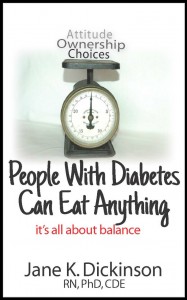 I strongly believe that we can’t be an expert at everything. Who has time? Those who work in diabetes can’t even be an expert in all aspects of diabetes. There’s just too much going on and too much to know.
I strongly believe that we can’t be an expert at everything. Who has time? Those who work in diabetes can’t even be an expert in all aspects of diabetes. There’s just too much going on and too much to know.
I work hard to stay healthy with diabetes, and I work hard to help others live well with diabetes. I keep pretty current with diabetes treatments, technology, etc., and I learn something new every day. And there is something I have been clueless about (or at least not in touch with), and that is the fact that people are dying because they can’t get insulin.
A friend recently returned from a conference in Australia, and she was telling me all about people around the world who can’t get insulin. She also told me about Insulin For Life, a non-profit that collects and sends insulin and diabetes supplies to people in need. If you or someone you know is looking for an organization to support financially – this is a good one! If you or someone you know has insulin that is in-date but won’t be used, consider sending it along to Insulin For Life and they’ll get it to someone who can use it. Same goes for diabetes supplies like blood glucose monitors and strips (in date).
You might just save a life.
PS I’m just learning about Insulin For Life (better late than never, I say), and it appears that Insulin For Life is happening in several different countries. Here is a link to IFL in Australia, where they explain a little more about the organization.








